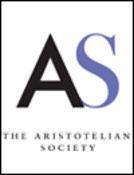-
Views
-
Cite
Cite
Seth Yalcin, VI—Bayesian Expressivism, Proceedings of the Aristotelian Society, Volume 112, Issue 2_pt_2, 1 July 2012, Pages 123–160, https://doi.org/10.1111/j.1467-9264.2012.00329.x
Close - Share Icon Share
Abstract
I develop a conception of expressivism according to which it is chiefly a pragmatic thesis about some fragment of discourse, one imposing certain constraints on semantics. The first half of the paper uses credal expressivism about the language of probability as a stalking-horse for this purpose. The second half turns to the question of how one might frame an analogous form of expressivism about the language of deontic modality. Here I offer a preliminary comparison of two expressivist lines. The first, expectation expressivism, looks again to Bayesian modelling for inspiration: it glosses deontically modal language as characteristically serving to express decision-theoretic expectation (expected utility). The second, plan expressivism, develops the idea (due to Gibbard 2003) that this language serves to express ‘plan-laden’ states of belief. In the process of comparing the views, I show how to incorporate Gibbard's modelling ideas into a compositional semantics for attitudes and modals, filling a lacuna in the account. I close with the question whether and how plan expressivism might be developed with expectation-like structure.





